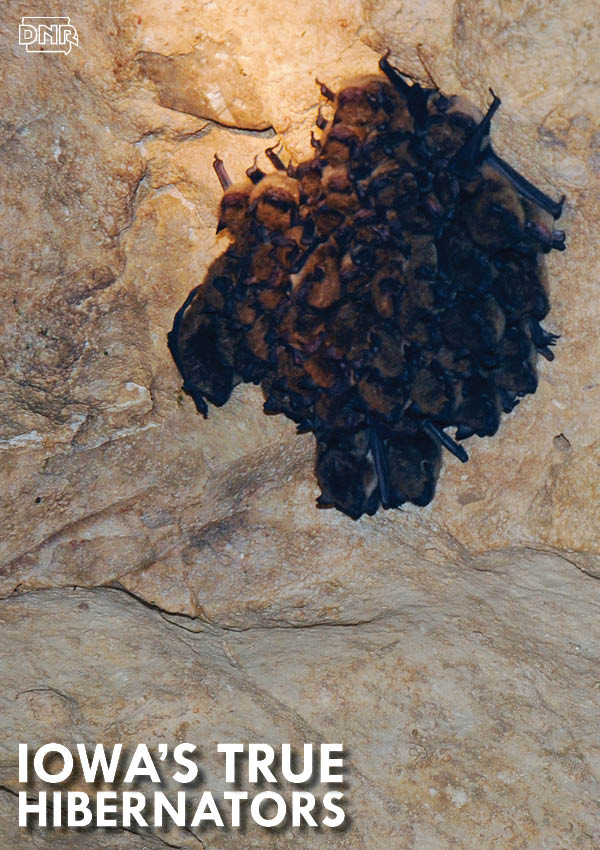 Winter has a lot of us wanting to settle in for a long nap and wake up when spring arrives, but Iowa actually has very few true hibernators.
Winter has a lot of us wanting to settle in for a long nap and wake up when spring arrives, but Iowa actually has very few true hibernators.
Most mammals, including humans, tend to slow down a little during the winter – it’s how we adapt to the cold, and for animals, decreased food supplies. For those critters who have barely anything to eat in the winter – think those that feast mostly on insects – shutting down for the winter is the best option.
To hibernate, Iowa mammals – like bats, woodchucks, ground squirrels, some mice and a few other rodents – curl into a ball and reduce their heart and breathing rates, body temperature and metabolism.
Amphibians and reptiles, which are cold-blooded and depend on the environment to stay warm, look for a place to keep toasty through the winter. They normally burrow into the ground (below frost level) or into the mud of a lake bottom and drastically slow their bodily functions until spring.
Some other animals in Iowa don’t take a season-long snore, but a series of long naps. Mammals like badgers, raccoons, chipmunks and skunks will take a deep sleep for a couple of days up to two weeks in order to reduce their need for food when it’s scarce.
Rather than hibernate, birds will migrate to warmer locations with available food if needed. Many birds stay in Iowa through the winter, especially ones that feed on seeds.
Wonder what fish do when it gets frigid? Learn more about why fish don't freeze in the winter. Also check out the DNR's Iowa Wildlife and We Love Winter in Iowa boards on Pinterest.